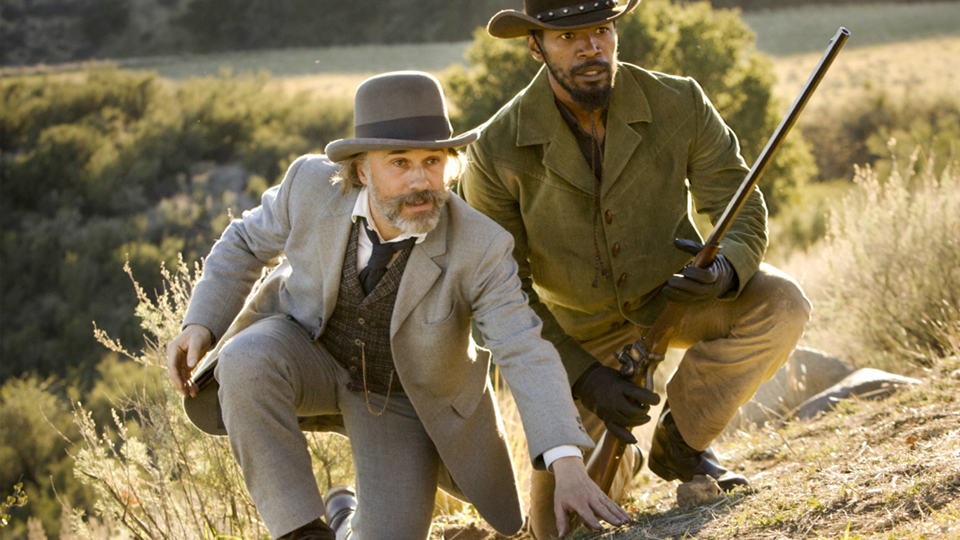Thank you, Quentin Tarantino, for giving us a movie with an outstanding cast, a solid plot, gorgeous cinematography, and a great soundtrack to boot. Though Django Unchained has unfortunately been labelled “the slavery movie” by some critics, it’s much more than that. Django Unchained is a dark comedy, a love story, and one of the best movies of 2012.
Leonardo DiCaprio has been getting a lot of buzz for his role as the vile slave owner Calvin Candie, and rightfully so. His character is a departure from the melancholy tortured-soul roles we’ve gotten used to seeing DiCaprio play in the last few years. His performance is nuanced and physical, and a delight to watch, despite the disturbing subject matter.
Christoph Waltz has also received a generous amount of praise for his role as King Schultz, a German bounty hunter, for which he earned an Oscar nomination last week. It’s safe to say that the partnership of Tarantino and Waltz has the potential of becoming the next Scorsese/DiCaprio pairing. Under Tarantino’s direction and with his awesome dialogue, Waltz owns the film. The dynamic between his King Schultz and Jamie Foxx’s Django is perfect. Contrary to the criticism of the naysayers, this is not a white saviour film. There is no condescension between King and Django. They are equal partners from their initial meeting to the end of the film.
A name that hasn’t been getting enough buzz this year is Kerry Washington. Her performance as Broomhilda von Shaft might be one of the most underrated of the year. Her lines of dialogue can be counted on one hand, but her acting is effective and memorable. She pours emotion and passion into her character, and her vulnerability is moving and believable. I might even argue that she ought to have been a frontrunner this awards season.
Django Unchained has its fair share of violence and gore, but it is rarely if ever gratuitous and necessary to get the point across, as is use of the “n-word”. Tarantino has been quoted saying that he didn’t use it in the film any more than it was used during the historical period. He portrays slavery realistically. He also manages to use humour without it being at the expense of the oppressed characters.
If you have any reservations about the film, buy yourself a ticket and check them at the door. You’ll laugh (most likely out loud), cry, cheer, and probably end up wanting to see the movie again—if not for the film itself, then for the epic soundtrack, which stays true to Tarantino’s excellent taste in music. Django is a definite must-see in theaters. MMMM½

